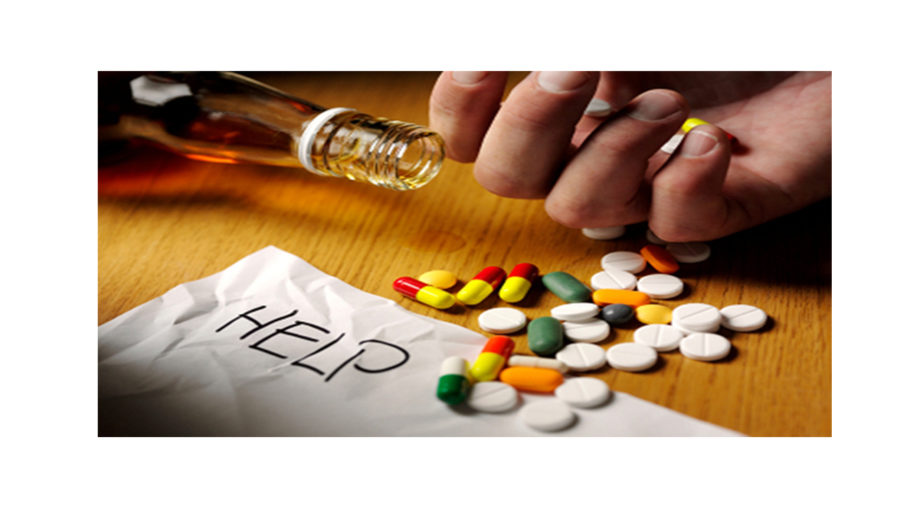Peer pressure, stress, a heavy courseload and curiosity – some reasons that lead many young people to turn to substance abuse. Drug and alcohol addictions can be found on almost any college campus around the nation. Students may agree that alcohol and drugs are just a natural part of the college culture. The typical fraternity party – where red solo cups wobble in almost everyone’s hand and the air is filled with ear- thumping dubstep – is a common starting point for most college students.
A former University of Southern Mississippi student began his downfall in the social scene. While struggling with painkillers and a severe alcohol addiction, he realized his health was more important than the high.
“I can’t take any drug or drink alcohol anymore,” he said. “Because at only 22, I found out my liver had so much damage that it was causing a lot of health issues that I am still dealing with today.”
Although he is sober, he says he still struggles.
“Depression is a major factor, but it all started with social drinking and social drug using,” the former student said. “It was furthered along by depression and using those two things as an escape from my problems.”
The former student’s problems vary with him facing jail and homelessness.
“I was in jail for four days after a DUI again and went into a spiral that I didn’t get out of until being kicked out of the place I was staying at the time,” he said. “With no job, no money, no food or anything, I had to sober up for a little bit, but quickly fell back off.”
According to the 2014 National Survey on Drug Use and Health, close to 500,000 college students reported previous-year illicit drug dependence or abuse. More than 3 million reported past- month binge drinking and about 1 million reported past-year alcohol dependence or abuse.
Abuse can be described as someone taking a potentially addictive drug not from his or her own prescription. Consistent overuse of a drug can lead to life- threatening circumstances.
According to the 2010 National Survey on Drug Use and Health, among adults ages 18-25, prescription drug abuse is second only to marijuana abuse (for non- medical purposes).
Nationally, the addiction epidemic takes a higher toll than the college level does. According to the survey, more than 22 million Americans have a substance use disorder that depends on treatment, but only 11 percent of them seek treatment.
Susceptible freshmen to invincible seniors can go through similar problems in college. As they are all adults away from the guard of their parents, students want to enjoy the advantages that come with their newfound freedom. That responsibility, stacked with the pressure of keeping up in the classroom, getting involved in the community and socializing, can be as hard as walking on a thin rope. Any slight wrong movement can cause a loss of balance and put a student in turmoil.
“My mother and father kicked me out because of it,” the former USM student said. “I hopped from job to job and ended up near homeless at one point. I did go to rehab once after a few nights in jail for a DUI. I don’t go to school, but it caused me to lose job after job because I would become apathetic and either quit or be fired.”
Many students have already been exposed to drugs and alcohol in high school or middle school. Throughout their teenage years and adulthood, people are often tempted by marijuana use. The National Institute on Drug Abuse reports that daily marijuana use among college-aged young adults is at its highest since 1980, surpassing daily cigarette smoking for the first time in 2014.
Most never would have imagined addiction would happen to them or that they would ever come close to abusing drugs.
A freshman at Jones County Junior College began using cocaine with her friends.
“I don’t like to say weed is a gateway drug, but honestly, if I had never started doing that, I would have never done coke or any other hard drug,” she said. “I remember saying to myself when I was younger that I would never do cocaine.”
Addictions arise from the need to cope from something like stress or loneliness. People go to alcohol and drugs as means to ignore their problems instead of going to someone for help. To some, it is easier to become obliterated by alcohol and forget all life’s problems than to face someone while asking for help.
Students have to deal with demanding coursework, jobs, internships, extracurricular activities and more. Entering the twenties is an exciting time of early adulthood, and curiosity is a major factor to why college students feel anxious to try new things, including drug experimentation with their friends.
Pulling the “all-nighter” is a common act heard among college students dedicated to doing well on a test. Accomplishing things with focus becomes difficult when students are faced with near-impossible juggling tasks to the point where their bodies and minds are just incapable of functioning properly. This is where study drugs come into play. Adderall and cocaine are just some stimulants students use. This habit can take a major toll on young bodies and minds and ultimately lead to addictions. A 2010 study in the Journal of Addictive Diseases found that 62 percent of a group of students with ADHD prescription medications were selling them to students. More than 100 people die in the U.S. every day from prescription drug overdose, with that rate increasing.
“I would buy a gram whenever I wanted, and that would last me a while,” the JCJC student said. “I had a very hard comedown off of supposed MDMA. I couldn’t sleep for two days because whatever I took was cut with amphetamines. I quit everything. I recently found another stash, and I told my boyfriend I’d dump it. I kept it for a while and recently did it to finish an essay last minute.”
Party drugs among college students show a high rate of usage. Party drugs such as cocaine, ecstasy and LSD are commonly used to engage in the social atmosphere. Binge drinking and abuse of over- the-counter drugs extend the feelings of confidence while out partying, according to the Social Issues Research Centre.
Students’ psychological well- beings, in turn, faces some repercussions.
“Cocaine probably made my depression worse,” the JCJC student said. “I’m not too social or talkative off coke. On it, I’m definitely more talkative and in a better mood in general. It made my mom cry when she found out.”
According to the Addiction Center, college students are also at high risk for developing eating disorders. Nearly 25 percent of all college students struggle with an eating disorder, according to a report by the National Institute of Mental Health.
That number is growing, with more men and women being affected by an eating disorder over the past 20 years. College students aiming to lose weight turn to diet pills and end up abusing them, causing serious health problems.
In society, addictions can have a stigma associated to them.
“If the views changed from negative to supportive, people would actively seek help more often,” the former USM student said. “If the stigma changed, I feel like we would take addiction more seriously, which in turn would cause us to view the root of the issue differently.
In any case you witness someone who has overdosed on drugs or poisoned by alcohol, you should immediately call 911 and check the airways of the unconscious person in order to perform CPR if necessary. Students coping with life difficulties, addictions or recovery should contact Student Health Services, which offer the Collegiate Recovery Community program for students who are in recovery from alcohol, drugs or eating disorders. There are also several community Alcoholics Anonymous or Narcotics Anonymous meetings to help those with struggles of addiction to maintain sobriety and healthy lifestyles.
The JCJC student believes rehab is not an effective treatment for addictions, however.
“People relapse repeatedly and go back over and over,” she said. ‘It’s a business, scamming people into wasting thousands of dollars. I quit before it got too bad. I’ll probably still use it occasionally to get schoolwork done. Who knows? Maybe not.”
































